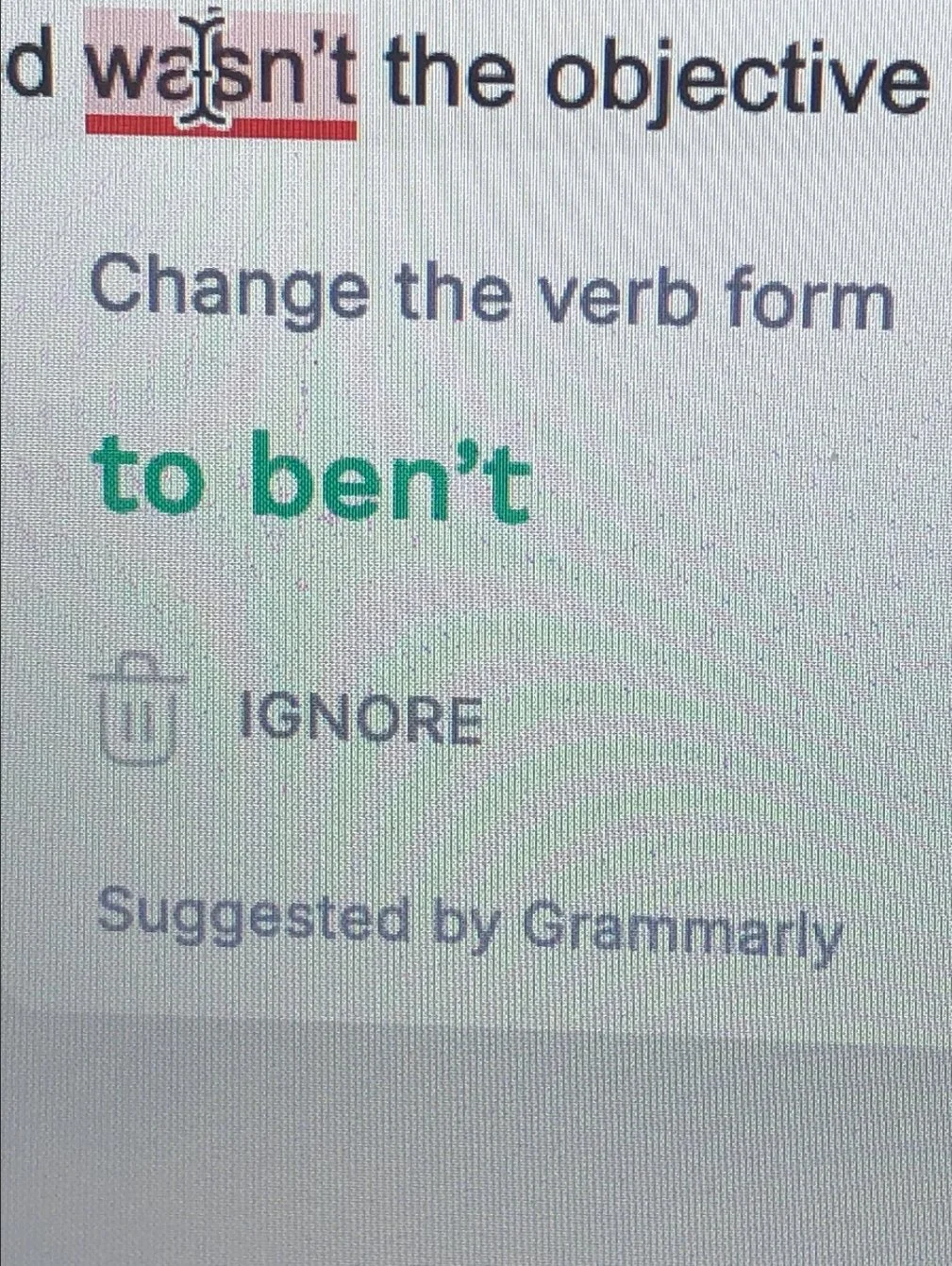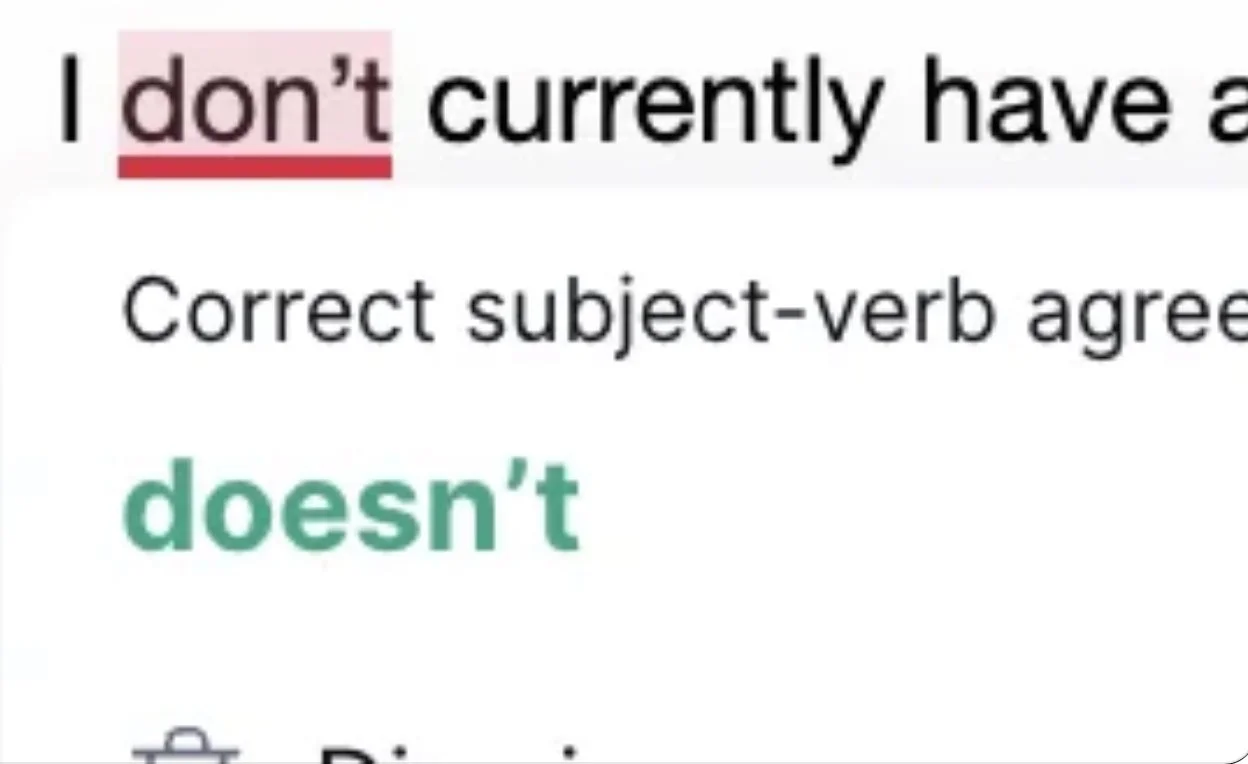The FAQ Files: Can I Just Use Grammarly Instead of Hiring an Editor?
You’ve written something - a blog post, an essay, a pitch, a book chapter - and before pressing publish or submit, a quiet question creeps in: Should I run this through Grammarly?
Or maybe more pointedly: Do I even need an editor if I’ve got Grammarly?
It’s a fair question, and one I’m often asked. So let’s talk about it honestly.
What Grammarly Can Help With
Grammarly (and similar tools like ProWritingAid or Hemingway) are useful. There’s no need to whisper it!
They can:
Catch rogue commas and spelling slips.
Flag clunky phrasing or repetition.
Suggest clearer, more concise alternatives.
Give a general sense check - especially if you’re editing late at night with a tired brain.
If you’re using Grammarly as a first-pass polish or a proofreading safety net, great. It’s like brushing the crumbs off the table before a guest arrives.
But that’s where its role ends.
What Grammarly Can’t Replace
Here’s the thing: Grammarly doesn’t know you.
It doesn’t know what you’re trying to say, who you’re saying it to, or what your voice sounds like when you’re at your best.
It can’t:
Notice when the rhythm of a sentence mirrors your style.
Adjust your tone for a nervous client, or a confident press release.
Tell you if your argument flows, if your messaging is persuasive, or if your story lands.
It won’t spot when a section needs tightening or expanding, or when you’ve buried the best line in paragraph five. It won’t tell you, kindly, that you’ve lost the thread halfway through. It won’t ask the bigger questions.
When Grammar Checkers Malfunction
Grammar checkers, like any tech tool, have their off days. The problem is, they don’t know they’re having an off day. They can’t pause, reread your sentence, and think, “Hang on… that sounds wrong.” Instead, they rely entirely on probability, pattern recognition, and learned data. Which means: when something slips outside the boundaries of what the tool understands, it can offer suggestions that are not just unhelpful, but hilariously wrong.
Take this gem:
In this example, Grammarly recommends changing “wasn’t” to “ben’t.” Which… isn’t a word. At all. It’s a prime example of what happens when an AI tries to mimic human language without truly grasping it.
Or this:
Here, the tool flags a perfectly acceptable “don’t” and insists you use “doesn’t” instead, despite the sentence already being grammatically correct. It’s the kind of suggestion that can derail your focus and leave you second-guessing yourself for no reason.
These moments are more than funny quirks. They’re a reminder that Grammarly isn’t reading your work for meaning. It’s not assessing your style or noticing that your tone shifts halfway through a paragraph. It’s not tuned into your intended message, your audience, or your brand voice. It’s just processing inputs and calculating the likeliest match.
That’s fine if you’re dashing off a quick email. But if you’re polishing business copy, blog content, or anything with a voice and purpose, you deserve more than auto-suggestions from an algorithm that thinks “ben’t” belongs in your final draft.
That’s where an editor comes in.
What Editors Really Do
Editors don’t just fix. They collaborate.
A good editor listens: not just to your words, but to the intention behind them. We tune in to your goals, your tone, your audience. We preserve your voice and enhance your message.
We can:
Restructure a wobbly paragraph so it sings.
Rework a tagline so it connects.
Help you say what you actually meant to say - with clarity, ease, and impact.
And we do it with care. That’s the difference. Grammarly edits mechanically. Editors edit mindfully.
A Personal Note, From Me to You
I’m not just an editor; I’m also a writer. I know what it feels like to share freshly written work and wonder, Does this even make sense?
If you’ve ever felt a bit nervous, stuck, or second-guessed your sentences, I want you to know that you’re not alone. You don’t have to work it out alone, either.
My job isn’t to correct you. It’s to support you - with practical edits, gentle guidance, and full respect for your words and voice. I care about making your writing sound like you, only clearer, stronger, and more confident.
Final Thoughts
So - can you just use Grammarly? Yes.
Will it do the job of a professional editor? Not quite.
Grammarly is a helpful tool. But it isn’t human. It doesn’t ask questions, build trust, or help you grow as a writer. An editor does.
If you want a real human on your side - someone who’ll work with your words and cheer you on - that’s where I come in.
Ready for something more thoughtful than a red squiggle?
Let’s make your message clearer, stronger, and still unmistakably yours.

